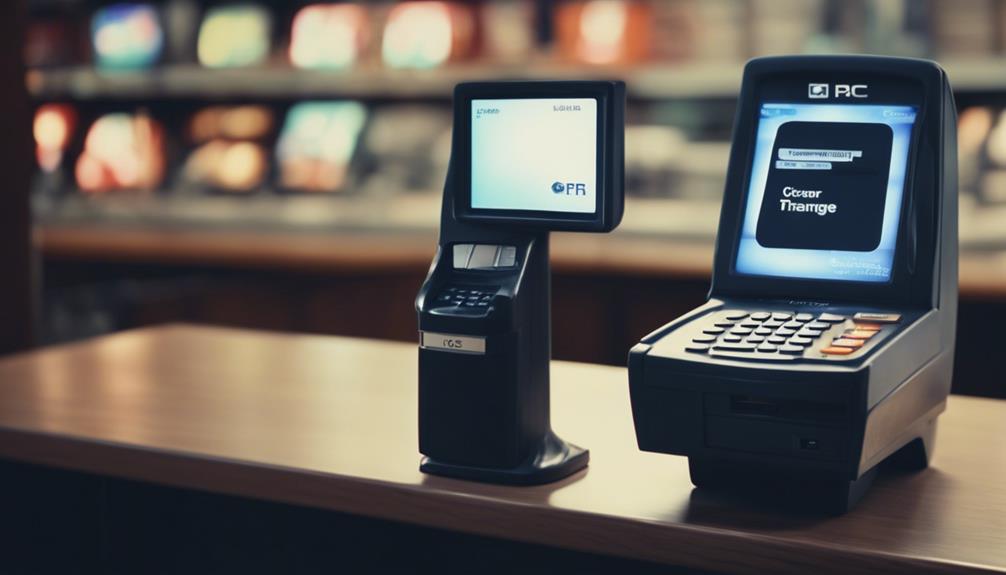In the domain of payment processing, the innovative concept of no-fee credit card processing is reshaping how businesses handle transaction costs. This approach involves passing fees to customers, primarily through surcharging, to cover processing expenses. It's gaining traction as a strategy to attract merchants by offering important cost-saving options. By automating processes and ensuring transparency with customers, this method aims to streamline operations and enhance profitability. Understanding the legal landscape and choosing providers wisely are vital steps. The shift towards no-fee processing heralds a new era in financial transactions, optimizing efficiency and financial gains for businesses. This model also aligns with evolving consumer preferences for convenience and transparency in payments. Businesses standing to benefit from no-fee credit card processing will also need to carefully consider the potential impact on customer relationships and sales. However, the overall credit card processing benefits, such as reduced costs and increased profitability, make it an appealing option for many businesses looking to streamline operations.
Key Takeaways
- No-fee credit card processing involves passing fees to customers transparently.
- Surcharging is common to cover credit card processing costs.
- These strategies aim to automate processes and save money for merchants.
- Legal challenges exist, with some states prohibiting passing fees to customers.
- Suitable for businesses with lower sales volumes, emphasizing automation and cost savings.
Overview of No-Fee Credit Card Processing

When delving into the world of no-fee credit card processing, understanding the concept of surcharging is crucial for merchants and customers alike. Surcharges serve to cover the costs associated with credit card processing and are a common practice among major credit card processors. This model allows merchants to pass on these fees to customers, often under different names like no-fee, free, or zero-fee processing.
While there may not be a substantial difference between no-fee credit card processing and surcharging, some companies may disguise their services as no-fee processing. Please be aware that no-fee processing typically includes surcharging options, aimed at enticing merchants to adopt this method of passing fees onto customers.
Key Similarities and Differences Explained

To grasp the nuances between no-fee credit card processing and surcharging, understanding their key similarities and differences is vital.
While both methods involve passing fees to customers, the main similarity lies in the goal of covering credit card processing costs. No-fee processing and surcharging differ in their approach; some companies may present themselves as offering no-fee processing when, in reality, they incorporate surcharging options.
The primary aim of both strategies is to entice merchants by providing a solution to avoid high processing fees. It's essential for merchants to inform customers about any surcharges applied.
Understanding the Operational Process

Understanding the operational process of no-fee credit card processing and surcharging involves dissecting how fees are passed on to customers and the mechanisms behind automating these transactions for merchants. Terminals are programmed to add a markup on purchases, usually limited to around 4%. This markup covers credit card processing fees, but it's vital to check local laws before implementing it.
The process requires informing customers of the surcharge. No-fee credit card processing is aimed at enticing merchants by automating various processes and saving money, although there are still some incurred costs.
It's important for merchants to notify customers of the surcharge for transactions and carefully check the fine print for any additional fees to ensure transparency in the operational process.
Legal Implications and Challenges

Legal challenges accompany the implementation of no-fee credit card processing, as banks and merchants navigate disputes over passing fees to customers. Banks often oppose shifting these costs to customers, leading to legal conflicts. Some states have even moved to prohibit this practice due to these disagreements.
While merchants seek to avoid high processing fees, banks aim to promote credit card usage without additional charges to consumers. Legal cases have arisen as a result of these disputes, highlighting the complexities involved.
As you explore the world of no-fee credit card processing, it's essential to stay informed about the legal landscape, ensuring compliance with regulations and understanding the potential implications of passing fees onto customers.
Evaluating No-Fee Credit Card Processors

When evaluating no-fee credit card processors, take into account their suitability for your business's sales volume and the automation benefits they offer. No-fee processors can be a great option for businesses with lower sales volumes as they help automate various processes for merchants, potentially saving money despite incurring some costs. To help you compare different processors, here is a table highlighting key aspects to take into account:
| Aspect | Consideration |
|---|---|
| Sales Volume | Make sure the processor caters to your business's sales volume to maximize benefits. |
| Automation | Assess the level of automation provided to streamline operations and save time. |
| Additional Fees | Check the fine print for any hidden costs or additional fees that may impact your overall savings. |
Frequently Asked Questions
Can Customers Opt Out of Paying the Surcharge in No-Fee Credit Card Processing?
In no-fee credit card processing, customers generally can't opt out of paying the surcharge. This fee covers credit card processing costs and is usually passed on to the customer by the merchant.
While some companies may market it differently, both surcharging and no-fee processing involve passing fees to customers.
It's important to understand local laws and inform customers about any surcharges applied to their transactions to promote transparency and compliance.
Are There Any Restrictions on the Types of Businesses That Can Use No-Fee Processing?
There aren't specific restrictions on the types of businesses that can use no-fee processing. It's generally available to all businesses. No-fee processing can benefit companies of various sizes and industries. While it may suit some businesses better than others, there isn't a set rule on eligibility.
Consider your business needs and assess if no-fee processing aligns with your goals. It's important to understand the implications and costs before implementing this payment method.
How Do No-Fee Processors Handle Chargebacks or Disputes With Customers?
No-fee processors handle chargebacks or disputes by following industry standards. They assist merchants in providing evidence for disputes and guide them through the process. Merchants are typically responsible for chargeback fees, which can vary.
It's important to communicate openly with customers to resolve issues promptly. No-fee processors aim to streamline dispute resolution while ensuring fair outcomes for both merchants and customers.
Stay informed about chargeback procedures to navigate disputes effectively.
Is There a Minimum Transaction Amount Required to Apply the Surcharge?
To apply a surcharge, there's typically no minimum transaction amount required. You can add a markup on purchases through terminals, usually capped at around 4%. Be sure to check local laws before implementing this practice and inform customers about the surcharge.
Some companies may disguise surcharging as no-fee processing. Both methods aim to shift fees to customers, enticing merchants with lower costs. Consider all factors before deciding to surcharge.
Do No-Fee Credit Card Processors Offer Support for International Transactions?
No-fee credit card processors can offer support for international transactions. They streamline payments across borders, making it easier for you to do business globally.
By utilizing these processors, you can accept credit card payments from customers worldwide without incurring additional fees. This convenience can enhance your customer reach and expand your business opportunities beyond domestic boundaries.
Always verify the specific international transaction capabilities of the processor you choose for seamless operations.
Conclusion
As you navigate the world of no-fee credit card processing, remember that every transaction is like a chess move – strategic and calculated.
Just as a skilled player anticipates their opponent's next move, you must anticipate the challenges and benefits of this revolutionary shift in payment processing.
Stay vigilant, stay informed, and stay ahead of the game to make the most of this innovative approach to handling transactions.
The future of payments is in your hands.










